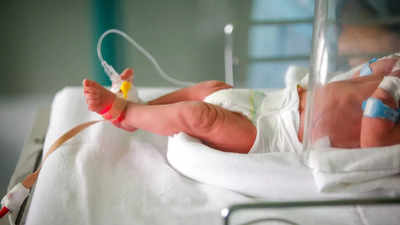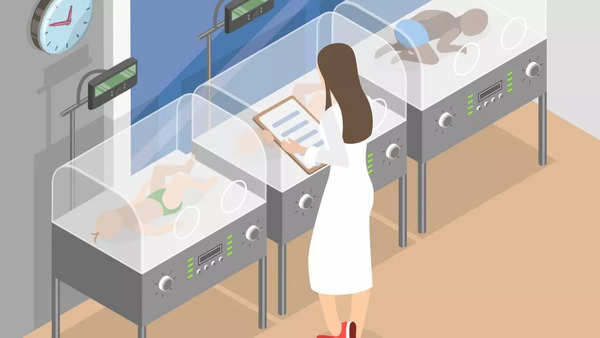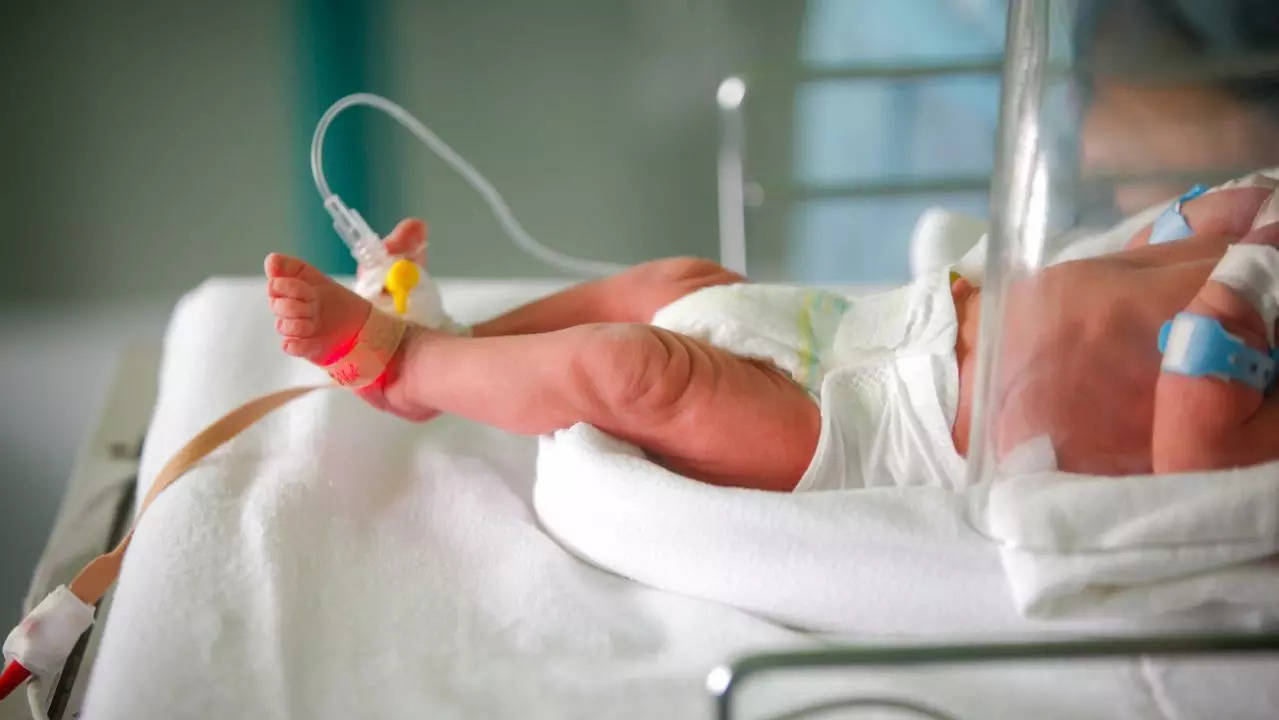As US President Donald Trump signed the executive order to revoke birthright citizenship, many Indian couples in the US are rushing to maternity clinics for a preterm delivery. Many of the Indian expectant mothers who are in their eighth or ninth month of pregnancy, are asking for an early
C-section delivery
. This is to beat the
birthright citizenship
deadline as those born from February 20 won’t be automatically entitled to citizenship in the US. Experts warn that preterm delivery can pose a grave risk to the baby and going for an early C-section can pose short term as well as long term risks.
What is birth citizenship in the US?
Anyone born in the US is considered a citizen at birth, which derives from the Citizenship Clause of the 14th Amendment added to the Constitution in 1868. The amendment states: “All persons born or naturalized in the United States and subject to the jurisdiction thereof, are citizens of the United States and of the State wherein they reside.”
As per the new order, children born in the United States are not entitled to automatic citizenship if the mother who was in the country unlawfully and the father was not a citizen or lawful permanent resident. Birth citizenship would also not be given to those whose mother was in the United States lawfully but temporarily, such as those on student or tourist visas, and whose father was not a citizen or lawful permanent resident.
What is a preterm birth?
About 1 out of every 10 births in the US is premature. A baby born before 37 weeks of pregnancy, is considered a premature or preterm baby. The earlier the birth, the more the possibility of serious health risks to the baby. These risks include breathing problems and trouble maintaining temperature. Preterm infants may need special care in a NICU.
A preterm baby may have underdeveloped organs like the brain, lungs and liver. They may have trouble staying warm or feeding and may be at risk for developmental delays later in life.
As per World Health Organization, prematurity is the leading cause of death in children under the age of 5 years around the world. In low-income settings, half of the babies born at or below 32 weeks (2 months early) die due to a lack of feasible, cost-effective care such as warmth, breastfeeding support and basic care for infections and breathing difficulties.
Babies may be born preterm because of spontaneous preterm labour or because there is a medical indication to plan an induction of labour or caesarean birth early.
Health consequences of preterm birth for the baby
“As gynecologists we always try to prevent a premature delivery unless it is absolutely essential for the health of the mother or baby. Preterm delivery can have significant short-term and long-term consequences for the baby,” says Dr Astha Dayal, Director – Obstetrics and Gynaecology, CK Birla Hospital, Gurugram.
In some cases, preterm delivery may be medically indicated like in
preeclampsia
or high blood pressure of the mother during pregnancy, placental abruption – a condition where the placenta separates from the uterus, depriving the baby of oxygen and nutrients. It can also happen in case of fetal distress where the baby is not receiving enough oxygen and nutrients, requiring immediate delivery. Sometimes in case of twins or multiple pregnancies, the risk of preterm delivery may increase.
“For most other conditions we try to prolong pregnancy at least up to 37 weeks,” says Dr Dayal.
“Preterm babies, born before 37 weeks of gestation, are at risk of various health challenges due to their underdeveloped organs and systems. The severity of these risks depends on how early the baby is born, with extremely preterm infants (born before 28 weeks) facing the highest risks,” says Dr Abhishek Chopra, Consultant Pediatrician and Neonatologist at Cloudnine Group of Hospitals, New Delhi Punjabi Bagh.
“Preterm and low birth weight babies are at a higher risk of SIDS, especially in the first year of life. Safe sleep practices, such as sleeping on their back and using a firm mattress are crucial,” adds Dr Chopra.
Preterm babies, born before 37 weeks of gestation, are at a higher risk for various health complications. These risks can be categorised into short-term and long-term complications.
Short-term complications:
1. Respiratory Distress Syndrome (RDS): Underdeveloped lungs can lead to breathing difficulties, requiring oxygen therapy in neonatal ICU or even mechanical ventilation.
2. Feeding problems: Preterm babies may have difficulty sucking, swallowing, and digesting milk, leading to nutritional deficiencies.
3. Hypoglycemia or low blood sugar: This can occur due to immature liver function and inadequate glucose stores.
4. Hypothermia: Preterm babies may struggle to regulate their body temperature, leading to hypothermia.
5. Infections: Preterm babies are more susceptible to infections, such as sepsis, pneumonia, and meningitis.
These complications may be handled by good
neonatal care
but long-term Complications are not always predictable and manageable. These include:
1. Neurodevelopmental delays: Preterm babies are at a higher risk for cognitive, motor, and behavioral delays.
2. Cerebral palsy: Preterm babies are more likely to develop cerebral palsy, which affects movement, balance, and coordination.
3. Vision and hearing impairments: Preterm babies are at a higher risk for vision and hearing problems, including retinopathy of prematurity and hearing loss.
4. Chronic lung disease: Preterm babies may develop chronic lung disease, leading to recurrent respiratory problems.
5. Increased risk of adult diseases: Preterm babies may be more likely to develop adult diseases, such as hypertension, diabetes, and cardiovascular disease.
How to take care of a preterm baby
Neonatal Intensive Care Unit (NICU): Provides specialized care for preterm babies with advanced medical equipment and a team of experts.
Developmental follow-ups: Regular check-ups to monitor growth, development, and address any complications early.
Parental support: Counseling and education help parents manage the challenges of caring for a preterm baby.
With advances in neonatal care, most preterm babies grow up healthy but early interventions are crucial for minimizing long-term risks.
I’m Manas Ranjan Sahoo: Founder of “Webtirety Software”. I’m a Full-time Software Professional and an aspiring entrepreneur, dedicated to growing this platform as large as possible. I love to Write Blogs on Software, Mobile applications, Web Technology, eCommerce, SEO, and about My experience with Life.





